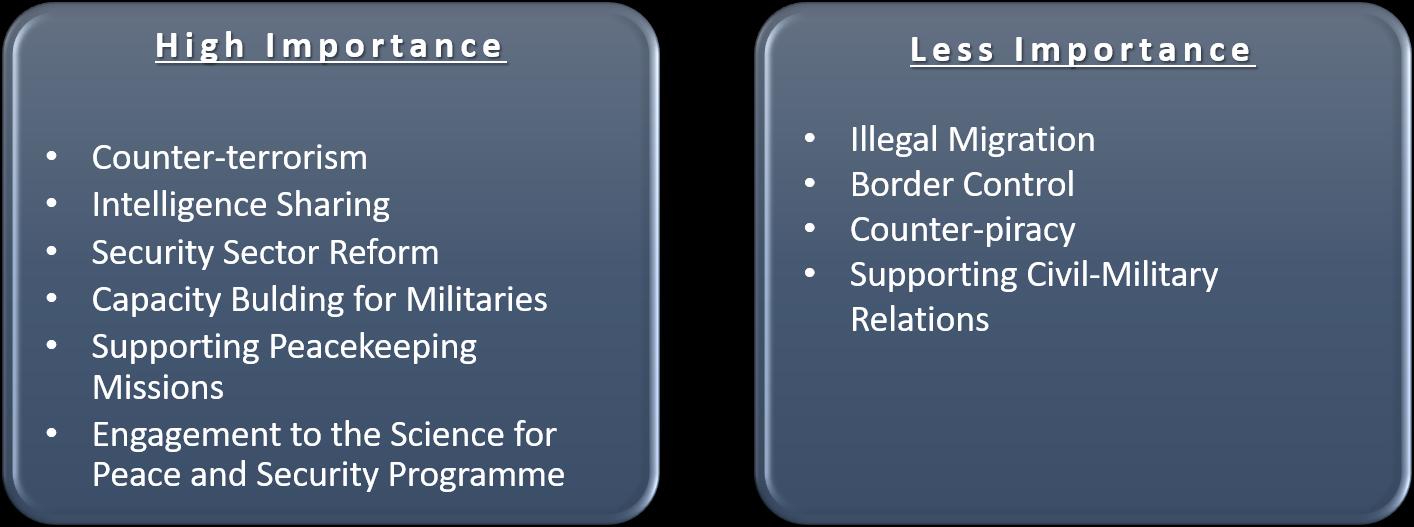
1 minute read
h. What would be the priorities for African countries in their relations with NATO?
manner, or by interfering in the internal affairs of Africa. As one can imagine, there is a significant sensitivity to outside intervention in the internal affairs of the African continent.
Figure 7: Expectations of Africa
Greater Clarity on NATO Strategic Aims in the continent
Support demand for peacebuilding, conflict resolution, capacity building for national security forces
To get support every possible way but not dominating and interfering in internal affairs
Expectations of Africa
A political platform between NATO and the African Union/African Governments
The second demand of NATO that was identified by African experts is greater clarity on NATO’s strategic aims in the continent. The third lies in the areas of peacebuilding, conflict resolution and capacity building for national security forces. Regarding past, current and "frozen" conflicts as well as unsecured geographies on the African continent, NATO has much to potentially deliver - but without breaching individual national sovereignty. Fourth is a request for structured and regular political dialogue between NATO and the African Union/African governments that would create a stable platform in support of possible future activities. The overall demand, therefore, is continued practical cooperation in key areas such as counter terrorism and increased use of security forces in humanitarian missions, i.e., disaster relief/pandemic management, which are, effectively, encouraging of and supportive to‘ soft power’ approaches.
h. What would be the priorities for African countries in their relations with NATO?
Respondents stated that NATO should begin by recognizing that each region and/or country in Africa requires a different approach which must take into account both the country and NATO, as well as the particular NATO members that are engaged. It would be particularly wise to avoid former colonial powers in the nations they once ruled, it was suggested. However, it could be vice versa in some cases where the colonial experience is not perceived so negatively.





